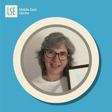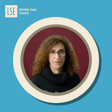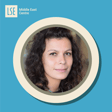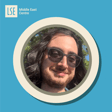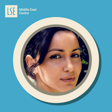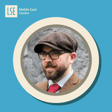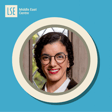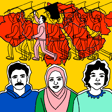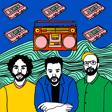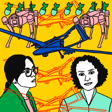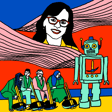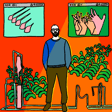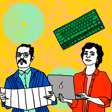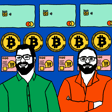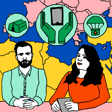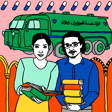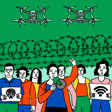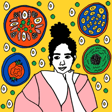Become a Creator today!Start creating today - Share your story with the world!
Start for free
00:00:00
00:00:01

Episode 6: Serhun Al on Kurdish Movements, Peace, and the Role of Researchers in Society
In this episode, Anne Kirstine talks to Serhun Al about his fieldwork on Kurdish movements in Turkey and beyond. Serhun reflects on his own Kurdish roots and how they influence his research. He also explains how he navigates his positionality when conducting interviews in conflict zones, and shares his reflections on researcher neutrality.
Serhun is an Assistant Professor in the Department of Political Science and International Relations at Izmir University of Economics, where he recently returned after spending a year as a visiting scholar at the State University in Ohio. His research, published in both Turkish and English, focuses on ethnicity, nationalism, and security studies in the Kurdish Middle East and Turkey.
Transcript
Introduction to Precisionality Podcast
00:00:02
Speaker
Hello and welcome to Conversations on Precisionality, a podcast brought to you by the LSE Middle East Centre. My name is Anne Kirsten Rohn. I'm a visiting fellow at the Centre and in this podcast I set out to explore how who we are as researchers shapes the work we do.
00:00:19
Speaker
In the past episodes of this podcast, I've had some insightful conversations with different colleagues about the role of factors such as gender, nationality and language in our fieldwork. We've touched on the difficult dilemmas concerning trust, solidarity and public speaking and reflected on how to strengthen the awareness about positionality within our academic institutions.
Interview with Serhun El
00:00:41
Speaker
In this episode, I look forward to delving deeper into these topics together with Serhun El. Serhun is Assistant Professor at the Department of Political Science and International Relations at Izmiri University of Economics. His research, which is published in both Turkish and English,
00:00:57
Speaker
looks at ethnicity, nationalism, and security studies in the Kurdish Middle Eastern Turkey, and his latest book, Studies Turkish and Ottoman State Policy Toward Minorities and Nationhood from the Mid-19th Century to the Early 21st Century. As part of his research, Zadhan has conducted fieldwork in conflict settings about topics which are highly sensitive and divisive, and one of the reasons why I've invited him to this podcast
00:01:23
Speaker
is that I would like to know more about how he navigates his role as a researcher in this context. So welcome to the podcast Serhon, and thank you for taking your time to be with me today. Thanks for having me. I'd like to start our conversation with a broader question if I may, and that is, how do you reflect on positionality in your research? How do you see your own positionality?
00:01:48
Speaker
as a researcher, especially if we are doing area studies, such as Middle East studies, especially when you study conflict, we are talking about very polarized, you know, perspectives. So my positionality from this perspective is that I am trying to be neutral as much as possible, and I am not trying to embrace the mentality of these moments or the mentality of the states, because that's not my primary concern.
00:02:17
Speaker
My broader positionality in these ethnic conflict situations is to have the peace perspective. So when I go out to the field, I try not to reflect my personal opinions. I am trying to be very open because my goal again is to understand what's going on in the field. For instance, when it comes to the Kurdish question in the Middle East,
00:02:42
Speaker
I am really taking the Kurdish concerns, the Kurdish victimhood, the Kurdish marginalization into account in my research. So I definitely take into account that Kurds should have their human rights, Kurds should have their language rights. And if it's possible, even the Kurds, I mean, should have their own nation state. But if you look at my research, when I go out to the field,
00:03:12
Speaker
I am not embracing the state discourse, but also I don't necessarily embrace the anti-state movements discourse as well because that's not my goal as a researcher.
Influence of Heritage on Research Identity
00:03:24
Speaker
I think it's interesting how you describe positionality as something that's linked to your goals as a researcher, which is a choice that you make. But of course, there are also parts of our positionality that come with our heritage and our family, and I'd like to discuss that with you as well, because your parents are both Kurdish, but at the same time you grew up in Izmir on the west coast of Turkey. So how would you explain that part of your identity and what role does it play for your research?
00:03:54
Speaker
In terms of my own identity, it's interesting as you mentioned.
00:03:59
Speaker
My parents are Kurdish. They are from Ulfa Sivarek, which is a town in Eastern Turkey. But I was born and raised in Izmir, Turkey, which is a secular, somewhat liberal region. So definitely my background affected my research agenda, right? So for instance, one of the issues is the language. My dad is
00:04:26
Speaker
He speaks Kurdish. My mom also understands and can communicate as well, but I couldn't learn the language. And this is one of the why I ended up researching this question. I'm like, why states ban certain languages? It's against human rights. So that's how, you know,
00:04:46
Speaker
Even from my high school years, I started asking questions about identity, about conflict, etc. I started learning Kurdish in the recent years. Still, I can't say I know the language. This has been a personal issue for me. It's a professional issue as well. If you are working on the Kurds,
00:05:05
Speaker
It's essential that you have access to their language or linguistic world as well. For instance, this has been one of the obstacles for me to have the complete access to the field. Could you perhaps elaborate a bit more on these barriers to access that experience in the field?
Challenges in Fieldwork
00:05:25
Speaker
When I did my field work, there was a peace process in Turkey between the Erdogan government and the PKK, the Kurdish insurgents.
00:05:35
Speaker
until 2015. But after 2015, the peace process collapsed and started a new urban warfare in southeastern Turkey. Many people died, many people lost their houses, many people were arrested. So trust is a big issue, especially when you do research in conflict zones, right?
00:05:59
Speaker
People want to know who you are and why you go to the field, why you go to the conflict zone. I remember in one instance, I was going to speak with one of the civil society organizations and they asked my name to other people, who's this guy? Is he pro-state or is he pro-Kurdish? You know, that polarization of different political worldviews. In order to have that trust so you can have access to the field,
00:06:29
Speaker
I said many times that my family is Kurdish as well. This was welcomed, but on the other hand, you know, some small things get into dimension, such as language, right? There was kind of a judgment, like why you don't speak the language, why your parents didn't teach the language. But, you know, again, like when I said I had Kurdish background, my access to the field was easier on certain contexts.
00:06:58
Speaker
But for instance, when I interview some of the government officials in the region in Southeastern Turkey, using my Kurdish background was not an advantage. Then people start to have these suspicions about you. They kept asking me, why did you come all the way from Izmer? What do you want to learn? They definitely try to understand your personal background and political opinions as well.
00:07:28
Speaker
So when talking with the Turkish government officials, I use my ISMIRS identity. That's how I navigate it. So when I hear about the way you navigate your identity in the field, I feel like asking you how you see yourself on the spectrum between being an insider and an outsider. To which extent do you consider yourself as an insider to the Kurdish communities in the Middle East?
00:07:56
Speaker
I am not a completely insider when it comes to the Kurdish world in the Middle East, but also I am not totally outsider because I am familiar with the culture, I am familiar with the traditions, I am familiar with the psychology of the Kurds. Although I grew up in Western Turkey, I definitely grew up with an
00:08:20
Speaker
Kurdish aura, the Kurdish politics, the conflict was always an issue in the family in our daily conversations. So in that sense, I'm not an outsider. Even though I don't go to the field every day, I can feel the emotions and the traumas and the concerns, anxieties, excitements of the Kurds in the region all the way from Izmir. That's what nationalism is, that, you know,
00:08:49
Speaker
what Anderson called the imagined community is that you have similar imaginations with your fellow people, even if they live in far distant locations. But on the other hand, for instance, this fact that I grew up in Izmir and I went to schools in the mainstream Turkish government schools, it kind of confuses you about your identity as well. But again, as I mentioned in the beginning,
00:09:19
Speaker
I don't have a particular political agenda when I study Kurdish movements or the Turkish government. But definitely, again, I want to emphasize if I am going to take a subjective position, peace is definitely one of my top concerns.
Neutrality and Engagement in Research
00:09:39
Speaker
and this position you take as a researcher and specifically your lack of political agenda. Is that something you talk to interlocutors about? And if so, what do they think about it? I think the members of the Kurdish moment are more critical of my positionality because they want their voices to be heard in a specific framework that they build their narratives. When I do research on them, as a member of that group,
00:10:09
Speaker
broadly speaking, when they cannot see the political agenda in me, they kind of get disappointed because they position me as someone that I should be responsible to get their voices out there to the world. Which I do, by the way. I mean, in the recent years, we have been experiencing a significant Democratic bank sliding
00:10:34
Speaker
A lot of scholars and indexes, if you look at Freedom House, Economics Intelligence Unit, etc., they identify Turkey as an authoritarian state. And one of the components of this authoritarianism in Turkey is to have a certain discourse towards the Kurdish issue. And that is that there is no Kurdish issue. Kurds are equal citizens of Turkey.
00:11:01
Speaker
And because of that, there is no need to do research on this issue. So even the fact that I am doing research on this issue is in itself a positionality. There are many great scholars out there who can combine their research and activism together. I am totally not against it, but I have not been trained in that framework.
00:11:28
Speaker
So some of the members of, you know, Kurdish groups might be disappointed that I'm not on the same page with them. Also from the Turkish perspective, the Turkish government's perspective, they also are not happy if I say something or if I ask a question that can offend their strategy. For instance, I'll give you one anecdote. I was interviewing
00:11:55
Speaker
one government official in Mardin, southeastern Turkey, when the conflict was really high. And the guy suddenly asked me like, what do you think? Why do you think the conflict started again? Why do you think the peace process ended? I am supposed to be the researcher, but he started researching me. In that occasion, I said like,
00:12:18
Speaker
Or maybe if there was a third eye in this conflict as a mediator, like, I don't know, an international force as a mediator. He got really mad and he said, like, this is the pro-Kurdish perspective. We don't need an international moderator in this conflict. We are going to deal with this problem by ourselves.
00:12:41
Speaker
I imagine that must be a really complex situation to handle. And speaking of complexity, we haven't even addressed yet all the internal differences that exist among the Kurds. Because as you also describe in your work, Kurdish groups range from leftists, secularists to Islamists. Does your positionality play out differently in your interviews with Kurdish movement members from secular and from religious backgrounds? So people definitely
00:13:10
Speaker
are coming from different ideological backgrounds. For instance, I did a couple of interviews in Mardin again with some of the members of Hudaapar. Hudaapar is the political faction of Kurdish Hezbollah. Kurdish Hezbollah was dismantled in the early 2000s and turned into a more political civil organization.
00:13:36
Speaker
And I didn't feel very comfortable, to be honest. I don't think they felt comfortable either because, for instance, I come from a more secular background. I think they knew that my profile did not fit with their profile. So there was a tense air when I was doing research with them. So definitely your religious beliefs, whether you are secular or not, create some prejudices.
00:14:06
Speaker
Even when you say, I am Kurdish, they are still not 100% sure whether they'll give you full access to their worldviews, their background, et cetera. So that's why they don't need to know our political opinions. And to be honest, I don't have a very certain political opinion either. I am confused myself too.
00:14:31
Speaker
But if there's one political opinion that I have, it is the peace that we need to establish peace. We need to stop this violence. We need to stop these conflicts in the region. And if my research can contribute that, this is a really, you know, an achievement for myself.
00:14:51
Speaker
I think you point to something really crucial here when you speak about the questions you get about your opinion. I remember several instances in my own research on Lebanese social movements where people have asked me to share my view and over time I kind of learned that it helps to have an answer ready like you have.
00:15:10
Speaker
that enables you to deal with these questions and also move on in the interview without having to reveal too much about your personal stance and potentially, you know, damaging the trust you've built up or your credibility as a researcher in that setting. I mean, otherwise you don't get the access. We need to learn how to navigate
00:15:34
Speaker
On the one hand, the state officials, which have completely different idea about the conflict. On the other hand, different Kurdish moments, which have, again, competing views about what they should be, what they should achieve, et cetera. So trying to be neutral, I think, is the best way, especially if your primary concern is to understand.
00:16:01
Speaker
I think that provides a good segue back to the question about our role as researchers. So before we started the recording, we discussed how positionality also relates to the question about which role we have as academics in the wider society. And I was wondering if you could share some of your thoughts on that.
Researcher Responsibility and Societal Impact
00:16:19
Speaker
I think as researchers, we are not outside of the social world that we are studying.
00:16:26
Speaker
And if we are part of that social and political and cultural world, we should have some role in terms of contributing some sort of progress in those societies. As a researcher, I tried to write and I did write in the past op-eds, a lot of op-eds for the media to reflect some of my ideas from my research. Sometimes I feel like, for instance, I should go to the Middle East, to the Arab world,
00:16:57
Speaker
issue. I think because the Arab public opinion has some prejudices about the Kurdish issue as well. This issue, this problem, this conflict needs to be talked and debated, deliberated in the Arab world as well. And also, I think as researchers, we should have connection with civil society organizations, share our research, our ideas, exchange of ideas with them.
00:17:25
Speaker
I try to do that as well in Turkey and abroad as well. So as researchers, I think, yes, the primary goal is to understand, but I think we have one way or another responsibility to contribute the societies that we research and the societies we are part of. So I really value that, you know, policymaking connection as well, which is hard.
00:17:49
Speaker
As I mentioned, there is definitely significant gaps between the research and the policymaking world, but the connection of those would be helpful as well. And honestly, I think that could be the topic of a whole episode or perhaps even a whole season of podcasts about how we as researchers engage with society around us and what our role in public debates and public policymaking should be.
00:18:17
Speaker
But I think we'll have to save that conversation for later, unfortunately. So Serhon, it's been great to have you on the podcast. And I think your reflections have inspired me to think more about a lot of different topics, including the stance we take to our subject matter. So thank you so much for that. It's been a pleasure to have you. No, thanks for having me again. And you are definitely right. We should have more conversation about these issues.
00:18:44
Speaker
especially in an age like where conflict has been spreading. And when I say conflict, I use it in a broader sense, the polarizations, the far right moments, et cetera, decline of democracies, decline of peace, the Russian invasion of Ukraine, et cetera.
Conclusion and Future Topics
00:19:02
Speaker
I think this is a good time to have a self-reflection of who we are as researchers and what is the ultimate goal of the research that we do.
00:19:14
Speaker
This was a great conversation. Again, thanks for inviting me and thanks for having me today. And that was all we had for this episode of Conversations on Precisionality. Thanks to the team at the LSE Middle East Centre for their work on the podcast. And thank you to the listeners for tuning in. In the next episode, I continue the conversation together with Madawi El-Arashid. Madawi is a visiting professor of social anthropology here at the Middle East Centre.
00:19:43
Speaker
She's written numerous books on politics and social relations in Saudi Arabia, and I think it's fair to say that she's one of the world's leading voices on these topics, in academia as well as in the policy sphere. It's going to be an exciting podcast, so I hope you'll listen in. And if you haven't already listened to the first five episodes of this podcast series, you can find these on your regular podcast platform or on the LSE Middle East Centre's website.
